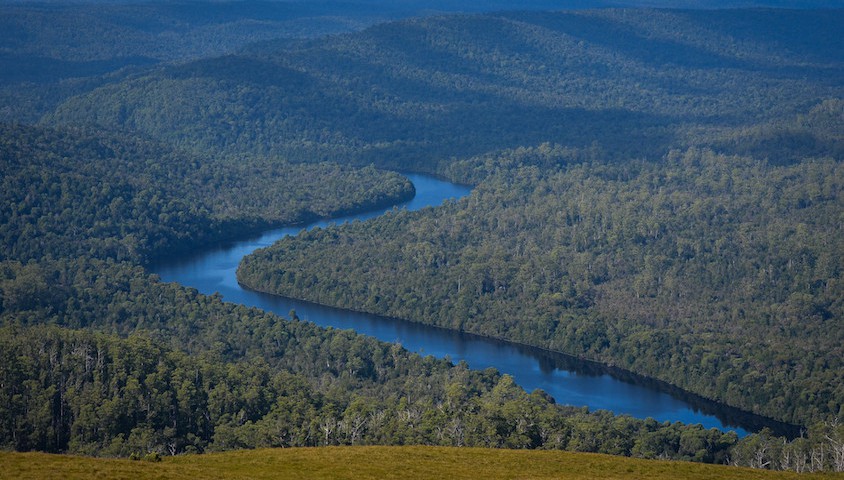The Bob Brown Foundation has today officially launched a proposal for a Trans Takayna/Tarkine Track in a bid to boost tourism in Tasmania.
Having commissioned an assessment study from Martin Hawes into the viability of a 100-plus-kilometre walking track in the island’s northwest last year, the conservation group believes the project would result in a world-class experience comparable to any international, multi-day walk.

A proposed route for the new track development, beginning near the Tarkine Wilderness Lodge in the region’s north (click to enlarge).
The proposal includes the development of the track itself as well as 10 raised-platform camping sites and associated toilet facilities, costing $20 million overall.
Bob Brown Foundation was joined by other key groups, including the Aboriginal Land Council of Tasmania, the Tasmanian Aboriginal Centre and Tarkine Trails to announce the proposal in a recent press release.
“A Trans Takayna/Tarkine Track will create hundreds of direct employment opportunities in the northwest and over time create many more indirect opportunities as the Takayna/Tarkine’s repuitation and the Track become a world-class, ‘must-do’ attraction in the state,” the release states.
Hawes’ assessment outlines a 10-day walk (of a standard comparable to the Overland Track) that begins near the Tarkine Wilderness Lodge (an hour’s drive from Burnie) and bears southwest towards the coast, before ending with a cruise up the Pieman River to the eco-village of Corinna.
Further improving accessibility, the proposed trail is bisected by the Wilderness Explorer Road, thereby allowing the route to be feasibly broken into two, five-day segments.
Additionally, it’s been suggested that the Takayna/Tarkine wilderness area be returned to the Tasmanian Aboriginal community, allowing members of that community to operate and manage the eventuating asset.
In a later statement, Bob Brown made clear that the proposal is designed to lay the groundwork for the Tarkine to gain further protection in the future.
“We put this plan forward as a centrepiece for a future Tarkine protected with World Heritage status. Our foundation also backs wild areas of the Tarkine returning to Aboriginal traditional ownership, and sees a major role for Aboriginal rangers in presenting the heritage of the region to visitors using the Trans Tarkine Track,” said Brown.
Of the proposed $20 million in costs, $17 million is estimated for track construction, $2 million for campsites, $400,000 for vegetation clearance and $275,000 for a detailed ground survey.
“We are seeking funding from the next Australian government for an Aboriginal heritage impact assessment, an impact study of the area’s natural and wilderness values and a business case to quantify the economic and employment potential of the track,” the first press release states.
“The Tasmanian Aboriginal Centre has the expertise to undertake the Aboriginal heritage assessment.”


